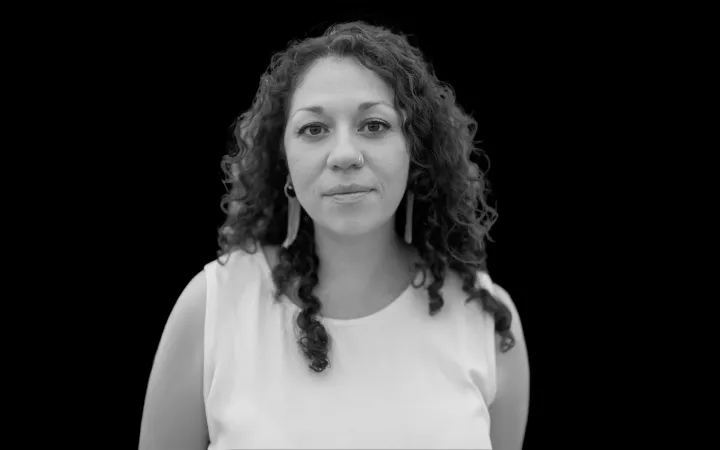
Por Laura Carrera

Recientemente, la Comisión Económica para América Latina y el Caribe (CEPAL) publicó su informe anual 2023, en el cual destaca que México es uno de los países donde las y los trabajadores dedican más horas al trabajo. Sin embargo, a pesar de estas largas jornadas, la productividad en México es una de las más bajas en toda América Latina.
Esta paradoja laboral pone de manifiesto una posible desvinculación entre el tiempo de trabajo y la eficiencia en los procesos productivos, y esto sugiere la necesidad de revisar las estrategias de gestión laboral y de inversión en capacitación y tecnología.
Además, llama poderosamente la atención que en México son las mujeres jóvenes, entre 15 y 29 años, quienes registran más horas de trabajo. De las 77 horas semanales que en promedio dedican a trabajar, 34 de ellas, es decir el 44%, no son remuneradas. Este dato nos lleva a reflexionar sobre la distribución de las responsabilidades domésticas y de cuidados, y cómo estas tareas, mayormente asumidas por mujeres, son un trabajo invisible que sustenta la economía, pero que no es reconocido ni valorado económicamente.
Y entonces, ¿en qué invierten esas 34 horas las jóvenes trabajadoras mexicanas?
Predominantemente en labores del hogar, cuidado de familiares y otras tareas no remuneradas. Este fenómeno refleja una brecha de género que aún persiste en nuestra sociedad y que se refuerza por estructuras culturales tremendamente arraigadas. Las implicaciones de esta carga desproporcionada son vastas, incluyendo limitaciones en el desarrollo profesional, educativo y personal de las mujeres jóvenes, además de que pone en riesgo su salud mental y emocional.
Por otra parte, el estrés laboral en México no sólo alcanza cifras alarmantes, posicionando al país como líder mundial en esta categoría, sino que también se refleja en otros indicadores sociales igualmente preocupantes. México ocupa el primer lugar en bullying y en maltrato infantil, además de estar entre los primeros lugares en criminalidad y violencia contra las mujeres, y en trata de personas, con un lamentable vigésimo lugar de entre 167 países.
Estos asuntos de violencia y seguridad son una preocupación crítica que afecta a la población en su conjunto, con un impacto particularmente severo en las mujeres de todas las edades
Frente a estas realidades, la gestión de las emociones es a menudo pasada por alto. Nuestras emociones, aunque a veces ignoradas, son una parte integral de nuestra experiencia humana. El estrés es tanto una emoción, como un estado de ser, que se deriva de otras emociones tales como el miedo, la ansiedad, la ira, el enojo y la agresión. Además, está profundamente influido por la sensación generalizada de vivir en un ambiente de violencia que muchas mexicanas y mexicanos experimentan diariamente.
Por ejemplo, las recientes actividades de las madres buscadoras en el estado de Sonora, que descubrieron una vasta fosa clandestina con más de 56 cuerpos en el Choyudo, municipio de Hermosillo, han sacudido a la comunidad, no solo de la capital sino de todo el estado e incluso del país. Estos descubrimientos, junto con una serie de homicidios en varios municipios del estado, incluyendo la muerte de un joven médico en su domicilio y múltiples asesinatos en un bar de Hermosillo, dejan una huella imborrable.
Estos eventos, si bien pueden parecer distantes, alteran el tejido emocional de la comunidad y pueden generar un ambiente de miedo, ansiedad y tristeza que afecta profundamente la salud mental y emocional de los habitantes de todas las edades.
Aunque no se quiera ver, emocionalmente, la comunidad se enfrenta a estos hechos con una mezcla de resignación y normalización, lo cual tiene profundas repercusiones en el estado de ánimo colectivo, particularmente en las niñas y los niños.
Las investigaciones científicas confirman que eventos traumáticos como éstos, tienen el potencial de alterar significativamente las emociones de las personas y generan un ambiente cargado de inquietud, angustia, intranquilidad, zozobra, nerviosismo, tensión, etc., incluso si superficialmente parece que se normalizan.
Estos estados emocionales no solo afectan la salud mental y emocional de las personas, sino que también pueden incrementar la sensibilidad y la irritabilidad, contribuyendo a un ciclo de agresión que, aunque no siempre visible, está latente en la sociedad.
Y, la desconfianza hacia las autoridades agrava la situación. La percepción de corrupción o falta de voluntad política para afrontar estos desafíos, así como la duda sobre la capacidad de las estructuras gubernamentales para garantizar la seguridad, solo sirve para aumentar el estrés y la ansiedad.
Y claro, este ambiente tenso lleva, a la larga, o a la corta, a comportamientos adictivos, incluido el consumo de alcohol y drogas, así como al incremento de enfermedades como la hipertensión, diabetes, problemas estomacales e intestinales y también padecimientos cardiovasculares.
La interconexión entre estos desafíos sociales y las emociones resultantes es innegable. Por ello, la atención a la salud emocional y mental de la población es fundamental en estos momentos y este es un tema que, lamentablemente, ha recibido poca atención.
Una aproximación para manejar esta situación podría comenzar en el núcleo familiar y extenderse a la comunidad, fomentando un diálogo abierto sobre las emociones y estableciendo redes de apoyo. Además, es importante promover estrategias de afrontamiento, como la resiliencia emocional y la inteligencia emocional con el propósito de mitigar los efectos de un ambiente tan cargado de estrés y violencia.
Laura Carrera. Antropóloga Social y doctora en Sociolingüística, con especialidad en Análisis del Discurso por la Universidad de Nanterre, París. Tiene posgrado en Neurociencia y Posgrado en Educación Emocional para el Bienestar por parte de la Universidad de Barcelona.
Fundadora y primera Titular del Centro Nacional de Prevención del Delito y Participación Ciudadana del Sistema Nacional de Seguridad Pública y primera Comisionada de la Comisión Nacional para Prevenir y Erradicar la Violencia contra las Mujeres de la Secretaría de Gobernación. En este período creó e impulsó el Modelo de Centros de Justicia para las Mujeres. Fue además Coordinadora del Sistema de Desarrollo Policial de la Policía Federal de México
Es creadora y conductora del Podcast “Despertar Emocional” y es Directora General de Estrategias Neuroeducativas, S.C.
Las opiniones expresadas son responsabilidad de sus autoras y son absolutamente independientes a la postura y línea editorial de Opinión 51.
Más de 150 opiniones a través de 100 columnistas te esperan por menos de un libro al mes.






Comments ()